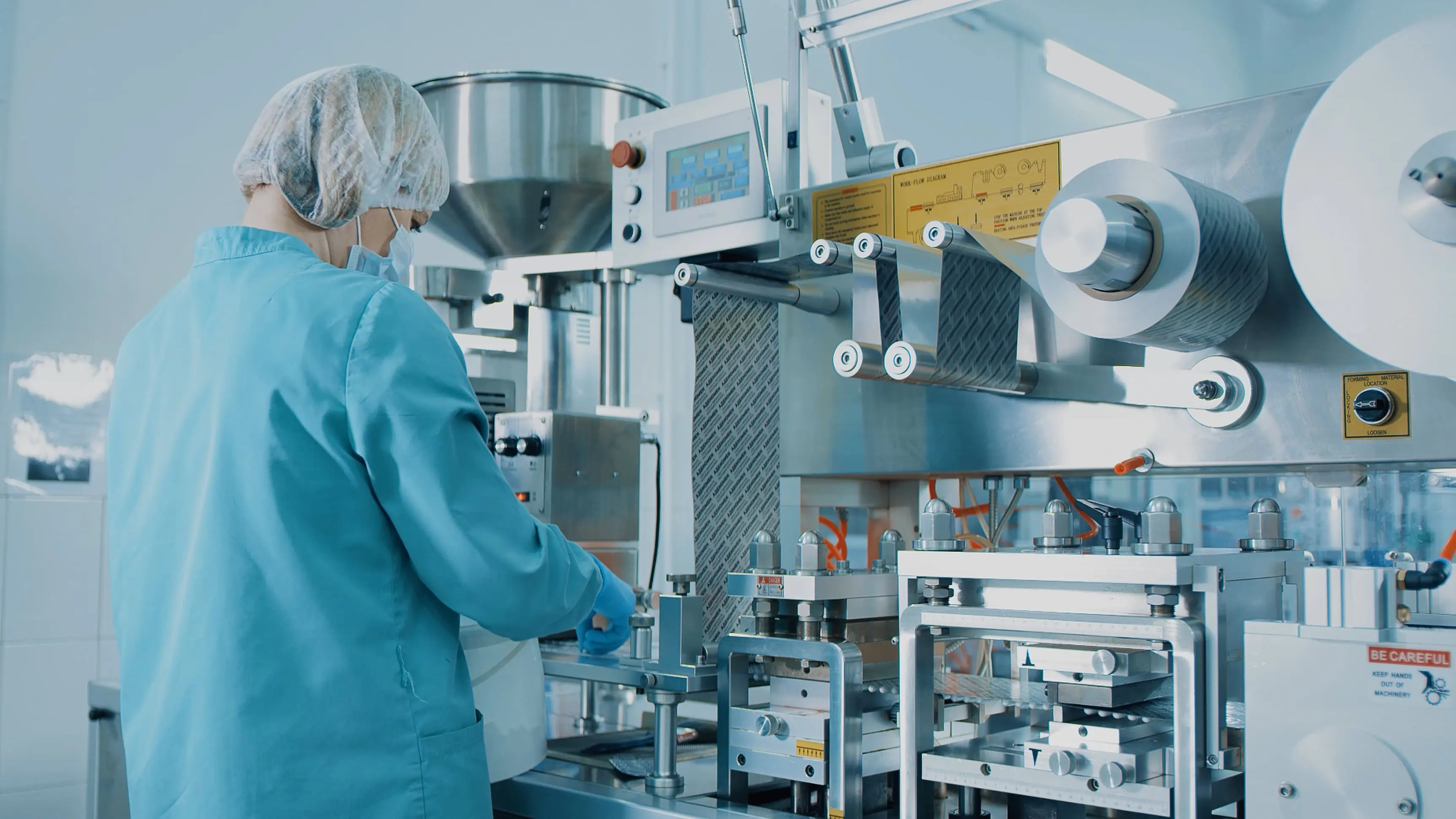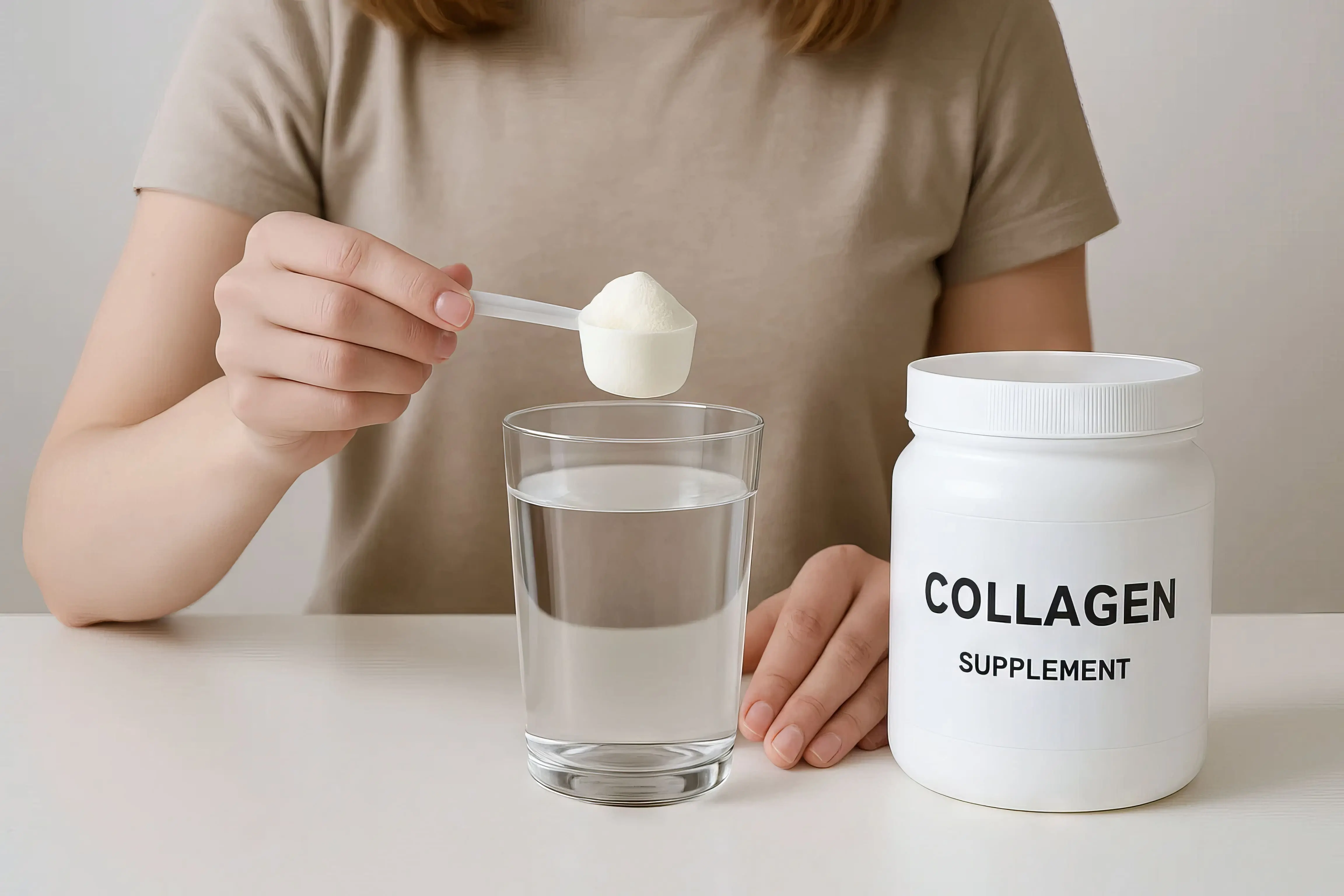Whey Protein vs Plant Protein: Key Differences
.png)
When choosing between whey and plant protein, consider your dietary needs, preferences, and lifestyle. Whey protein offers rapid absorption and a complete amino acid profile, ideal for quick muscle recovery. Plant protein, however, appeals to vegans, is typically easier on the digestive system, and is sustainable. Making a decision depends on factors like dietary restrictions, personal health goals, and ethical considerations.
Key Takeaways
- Whey Offers Rapid Muscle Recovery: Plant Protein Provides Ethical & Digestive Benefits: Whey protein is ideal for fast absorption, complete amino acid support, and post-workout recovery, making it a go-to for athletes. In contrast, plant protein is vegan-friendly, rich in fiber, and easier on digestion, aligning better with ethical, dietary, and sustainability preferences.
- Nutritional Composition and Taste Differ Significantly: Whey is high in calcium and B vitamins, has a smooth texture, and is protein-dense per calorie. Plant protein brings added fiber, iron, magnesium, and sustainability advantages, but may require blending for a complete amino acid profile and often has a more earthy taste.
- F.A.M.E. Health Labs Enables Tailored Protein Supplement Development: Whether you want to launch a whey-based or plant-based protein product, F.A.M.E. Health Labs offers custom formulation, packaging, and regulatory support. Their low MOQ, R&D expertise, and turnkey manufacturing solutions help you bring a unique protein supplement to market with speed and quality.
What is Plant-Based Protein?
Plant-based protein is derived from various natural sources such as beans, grains, seeds, and nuts. Unlike animal-based protein, it’s ideal for vegetarians and vegans and contains fiber and essential nutrients. Its sustainability and lower environmental impact make it an attractive choice for the environmentally conscious. Rich in diverse protein sources, it's possible to get a complete amino acid profile through a varied plant protein intake.
Types of Plant Based Protien & How they are made?
Plant-based proteins are derived from a variety of nutrient-rich sources and processed to retain their natural benefits. Soy protein is extracted through defatting and isolating protein from soy flour, while brown rice protein is obtained by enzymatically separating proteins from sprouted rice. Hemp protein is made by cold-pressing hemp seeds and grinding them into a fine powder, preserving healthy fats and fiber. Pea protein is typically created through water-based separation and drying, maintaining its high protein content and digestibility. Each type offers a unique nutritional profile suited for different health goals and dietary preferences.
Soy protein
Soy protein, derived from soybeans, is a complete protein containing all essential amino acids. It's particularly favored for its muscle-building potential and cholesterol-lowering properties. Additionally, soy protein is often a key component in vegetarian diets and offers benefits like heart health support and menopause symptom relief. It's versatile and can be consumed in forms like tofu, tempeh, and soy milk.
Brown rice protein
Brown rice protein, extracted from whole brown rice grains, offers an excellent hypoallergenic protein source. It's rich in essential amino acids like cysteine and methionine, making it ideal for muscle growth and recovery. This protein supports vegan diets and is generally well-tolerated, even by those with food sensitivities.
Hemp protein
Hemp protein, sourced from ground hemp seeds, offers a nutritious blend of essential fatty acids, fiber, and all nine essential amino acids. It supports digestion and heart health due to its omega-3 and fiber content, making it a great addition to a balanced diet. Hemp protein's unique nutty flavor makes it a flavorful option for smoothies and shakes.
Pea protein
Pea protein is extracted from yellow peas and is a popular plant-based option known for its high digestibility and hypoallergenic nature. It offers an impressive amino acid profile, particularly rich in branched-chain amino acids, supporting muscle growth. Pea protein is also environmentally friendly and suits those with dietary restrictions.
Exploring the Health Benefits of Plant-Based Protein
Plant-based proteins come from a variety of natural sources and are processed to retain their nutritional integrity while offering unique health benefits. Soy, pea, brown rice, and hemp proteins are among the most popular types, each extracted through methods like water-based separation or cold pressing to preserve quality. These proteins differ in amino acid composition, digestibility, and added nutrients, allowing for versatile use in supplements, shakes, and food products. Their diverse profiles cater to various dietary needs, making plant-based proteins a sustainable and effective alternative to animal-derived options.
Lower in Saturated Fat
Plant-based proteins are naturally lower in saturated fat compared to animal-based options. This quality helps in reducing the risk of heart disease by promoting better cholesterol levels. Incorporating these proteins into your diet can support cardiovascular health and overall wellness. Opt for plant protein sources like lentils, beans, and quinoa for a heart-friendly diet.
Rich in Fiber
Plant-based proteins are inherently rich in dietary fiber, promoting healthy digestion and regularity. This fiber content aids in controlling blood sugar levels and can help ensure prolonged feelings of fullness, contributing to weight management benefits. A diet rich in plant proteins like legumes and whole grains can significantly improve gut health and support detoxification.
Good for Muscle Building
Despite common misconceptions, plant-based proteins can be excellent for muscle building. With options like soy, pea, and hemp protein providing all essential amino acids, they support muscle repair and growth effectively. Combining various plant proteins can offer a complete amino acid profile, making them comparable to whey protein, especially when consumed in strategic blends.
Promote Healthy Cholesterol Levels
Plant-based proteins can aid in promoting healthy cholesterol levels, thanks to their lower saturated fat content and high fiber presence. Regularly consuming these proteins can help reduce LDL cholesterol and improve heart health. Incorporating foods like beans, nuts, and whole grains into your diet supports cardiovascular wellness.
Supports Healthy Blood Pressure Levels
Plant-based proteins support healthy blood pressure levels by being rich in nutrients that promote heart health, such as potassium and magnesium. The high fiber content also helps regulate blood pressure. Diets including ample plant proteins like lentils and chickpeas can lead to long-term cardiovascular benefits.
What is Whey Protein?
Whey protein is a high-quality protein derived from cow's milk during the cheese-making process. Known for its excellent amino acid profile, it’s highly favored by athletes for muscle recovery and growth. Whey protein is quickly absorbed by the body, making it ideal for post-workout recovery. It is available in various forms like concentrate, isolate, and hydrolysate, each offering unique benefits.
Types of Whey Protein
Whey protein is available in three main types, each suited to different nutritional needs and fitness goals. Whey concentrate is a budget-friendly option that retains beneficial compounds and is ideal for general wellness and moderate training. Whey isolate, with its higher purity and minimal lactose, is perfect for those seeking lean muscle gains or managing dietary sensitivities. Whey hydrolysate, the most refined form, delivers rapid absorption for faster muscle recovery, making it ideal for intense athletic performance. Choosing the right type depends on your health goals, digestion preferences, and protein requirements.
Whey hydrolysate
Whey hydrolysate undergoes extensive processing to break down proteins into smaller peptides. This method enhances its absorption rate, which benefits muscle recovery. It's particularly favored by athletes and bodybuilders for rapid post-exercise protein synthesis. Despite its advantages, it may come at a higher cost due to the extra processing involved.
Whey concentrate
Whey concentrate contains around 70-80% protein by weight, balancing quality with affordability. It's rich in beneficial compounds like immunoglobulins and lactoferrin. While it contains more carbohydrates and fats than other forms, this also means more lactose, which may not suit those with lactose intolerance.
Whey isolate
Whey isolate is a highly processed form of whey, boasting over 90% protein content per serving. Its low lactose and fat levels make it ideal for those with lactose intolerance or seeking a lean protein option. This purity often results in a higher price point, offset by excellent muscle-building benefits.
Process of Making Whey Protein
The production of whey protein involves a carefully controlled series of steps to preserve its nutritional quality. It begins with sourcing fresh, pasteurized milk, which is then processed during cheesemaking to extract liquid whey. This whey undergoes advanced filtration methods to remove fats, lactose, and impurities while concentrating the protein content. Finally, the liquid is dried into a fine powder using specialized drying techniques, resulting in a shelf-stable, high-protein supplement. Each stage ensures the end product is clean, effective, and ready for use in health and fitness routines.
Milk collection
The process of making whey protein begins with the collection of fresh cow's milk. This high-quality milk is the essential starting point in producing whey, ensuring the protein maintains its nutritional integrity. The collected milk undergoes pasteurization to ensure safety and quality before moving to the next stage.
Cheesemaking
Once the milk is collected, it enters the cheesemaking stage. This involves adding specific enzymes and cultures to the milk to separate the curds from the whey. While the curds proceed to become cheese, the liquid whey is extracted and further processed into protein supplements.
Whey separation
Following cheesemaking, the liquid whey undergoes a separation process to remove impurities and solids. This refined whey is then filtered through ultrafiltration and microfiltration techniques, ensuring all non-protein components like water and lactose are minimized. This step is crucial in achieving high-protein content and purity in the end product.
Protein concentration
After whey separation, protein concentration is achieved through additional filtration processes. This step increases the protein content significantly while reducing unnecessary components like fat and lactose. Techniques like ion exchange or cross-flow microfiltration ensure a more concentrated protein, crafting a high-quality, efficient protein powder for consumption.
Drying
The final step in whey protein production is drying, where liquid whey concentrate is transformed into powder through spray or freeze-drying methods. This process ensures whey protein's long shelf life and convenient packaging. The resulting fine powder is then ready for distribution and use as a dietary supplement.
Exploring the Health Benefits of Whey Proteins
Whey protein comes in three primary forms—concentrate, isolate, and hydrolysate—each offering unique benefits based on protein content, digestibility, and processing methods. Whey concentrate strikes a balance between nutrition and cost, while whey isolate provides a purer, low-fat option ideal for those with lactose sensitivity. Whey hydrolysate, the most processed form, allows for faster absorption, making it a top choice for muscle recovery. These variations cater to different fitness goals, dietary needs, and budgets, offering flexibility for anyone looking to incorporate high-quality protein into their routine.
Bodybuilding
Whey protein is a staple in bodybuilding routines, thanks to its rapid digestion and complete amino acid profile. It provides essential nutrients for muscle repair and growth post-training. Its convenience and effectiveness make it a popular choice among athletes and fitness enthusiasts aiming to enhance muscle mass and recovery.
Glutathione
Whey protein boosts the body's production of glutathione, a powerful antioxidant essential for immune support, detoxification, and cellular health. By helping increase glutathione levels, whey protein contributes to reducing oxidative stress and enhancing overall well-being. Its role in promoting this antioxidant makes it a valuable addition to a balanced diet.
Fat loss
Whey protein can be an effective tool for fat loss by increasing satiety and supporting lean muscle mass, which boosts metabolic rate. Its high protein content aids in preserving muscle during a calorie deficit, making it a valuable component of weight loss diets.
Digestibility
Whey protein boasts high digestibility due to its rapid absorption rate, making it an excellent option for post-exercise nutrition. This efficiency ensures quick delivery of essential nutrients to muscles, aiding recovery. Its ease of digestion suits individuals seeking minimal gastric discomfort after consumption.
PDCAAS
Whey protein scores exceptionally high on the Protein Digestibility Corrected Amino Acid Score (PDCAAS), reflecting its complete amino acid profile and superior digestibility. This makes it an ideal protein source, ensuring the body efficiently utilizes its nutrients to build and repair tissues.
Key Difference between Whey and Plant Protein
When comparing whey and plant protein, the primary differences lie in their amino acid profiles, digestibility, and nutritional content. Whey protein offers a complete amino acid profile and faster absorption, benefiting muscle growth. Plant proteins vary in amino acid content but are rich in fiber and low in saturated fat, which supports heart health. Depending on your dietary needs and ethical preferences, both protein sources provide substantial health benefits.
Digestion
Whey protein is rapidly absorbed, making it ideal for quick post-workout recovery, while plant proteins are digested more slowly due to their fiber content. This slower digestion can help with satiety and prolonged energy release. The choice depends on your dietary goals—quick replenishment or sustained energy.
Nutritional Content
Vitamins and Minerals
Whey protein is naturally rich in calcium and some B vitamins, supporting bone health and energy metabolism. In contrast, plant proteins often contain iron, magnesium, and zinc, which are crucial for immune function and muscle repair. Both have unique benefits that cater to different nutritional needs.
Calorie Count
Plant proteins often have fewer calories per serving compared to whey protein, making them suitable for calorie-conscious individuals. However, whey protein provides more protein per calorie, which can be more beneficial for muscle gain. Consider your dietary goals and choose accordingly.
Amino Acid Profiles
Whey protein boasts a complete amino acid profile, rich in essential amino acids crucial for muscle recovery. Plant proteins typically lack some amino acids, necessitating variety for a complete profile. Combining different plant sources like rice and pea can fill these gaps effectively.
Sustainability and Ethics
Plant proteins typically have a lower environmental impact compared to whey, as they require fewer resources like water and land. Additionally, they align better with vegan and vegetarian ethics. For those concerned about sustainability, opting for plant-based options supports environmental conservation. Whey production, while efficient in protein synthesis, has a larger carbon footprint. Consider the environmental and ethical aspects when selecting your protein source.
Taste and Texture
Whey protein is often praised for its smooth texture and creamy taste, making it easy to blend into shakes. In contrast, plant proteins can have a grittier texture and an earthy taste, which some users find less appealing. However, flavored versions of plant proteins help mitigate these differences. When choosing between them, consider personal taste preferences and how you plan to incorporate the protein into your meals.
Final Thoughts
Choosing between whey and plant protein depends heavily on your dietary goals, ethical considerations, and taste preferences. Whey protein offers fast absorption and a complete amino acid profile, making it perfect for rapid muscle repair post-exercise. On the other hand, plant proteins provide sustainability, diverse nutrient content, and are aligned with vegetarian or vegan lifestyles. Each has unique benefits, so your choice should align with your health objectives and personal values.
For those eager to venture into the supplement industry, we offer comprehensive services ranging from dietary supplement manufacturing to custom supplement formulation and packaging solutions. As a leading custom tablet manufacturer, they provide expertise to help you establish a successful supplement brand in the USA. Their extensive experience ensures high-quality, customized products tailored to meet diverse consumer needs.
Partner with FAME Health Labs to Manufacture Top-Quality Supplements
F.A.M.E. Health Labs stands out as a premier partner for launching your supplement brand, offering a blend of innovation and expertise in dietary supplement manufacturing. They specialize in custom supplement formulation, ensuring each product is uniquely tailored to your brand's vision and market needs. With their advanced packaging solutions, F.A.M.E. Health Labs helps ensure your products reach consumers in peak condition, enhancing brand reputation and customer satisfaction. Whether you're new to the supplement industry or looking to enhance existing offerings, partnering with them adds value by maintaining quality assurance at every production stage.
FAQs
What’s the average shelf life of protein supplements and how should I label them?
Protein supplements often have an average shelf life of 18 to 24 months. It's crucial to label them with expiration dates and storage instructions. Proper labeling ensures customer safety and compliance with industry regulations. Always keep them in a cool, dry place to maintain their quality.
Does plant protein take longer to digest than whey protein?
Yes, plant protein usually digests more slowly than whey protein due to its higher fiber content. This slower digestion can keep you fuller longer, while whey protein is rapidly absorbed, making it ideal for quick post-workout recovery. Your choice depends on desired satiety and digestion speed.
How do I formulate a custom protein blend for my supplement brand?
To formulate a custom protein blend, start by identifying your target market and nutritional goals. Next, choose protein sources that best align with these goals—whether it's whey for quick recovery or plant proteins for sustainability. Work with an experienced dietary supplement manufacturer like us to ensure the blend meets quality standards and market demands. They can guide you through the formulation, testing, and packaging phases to create an optimal product.



.png)


















.webp)


.gif)


